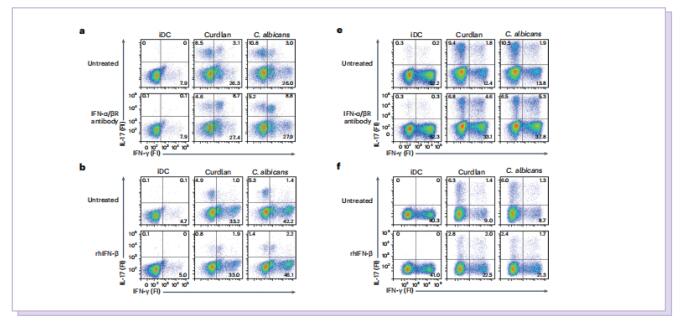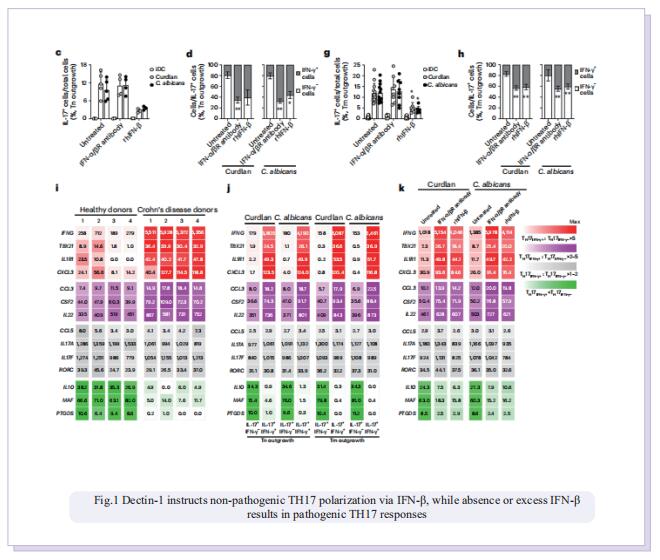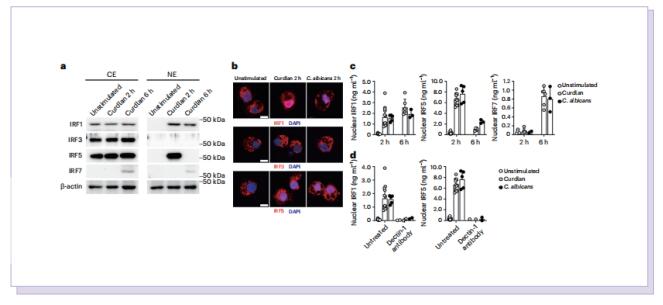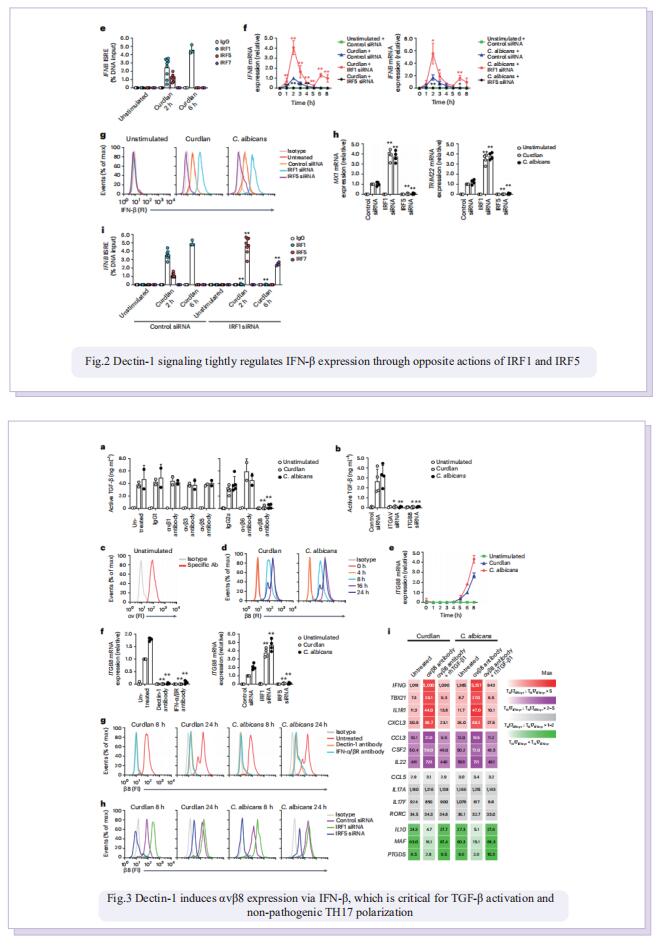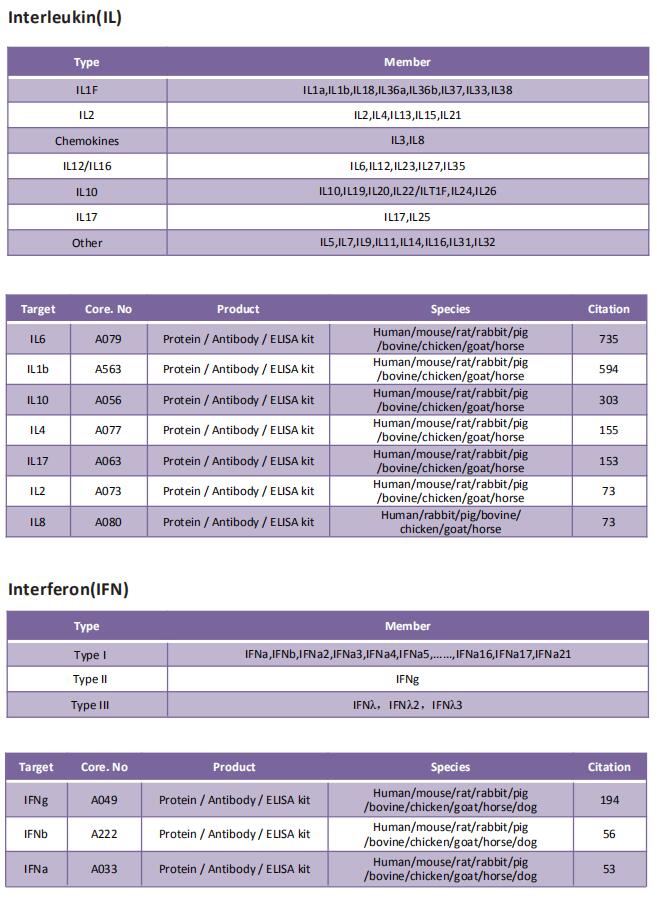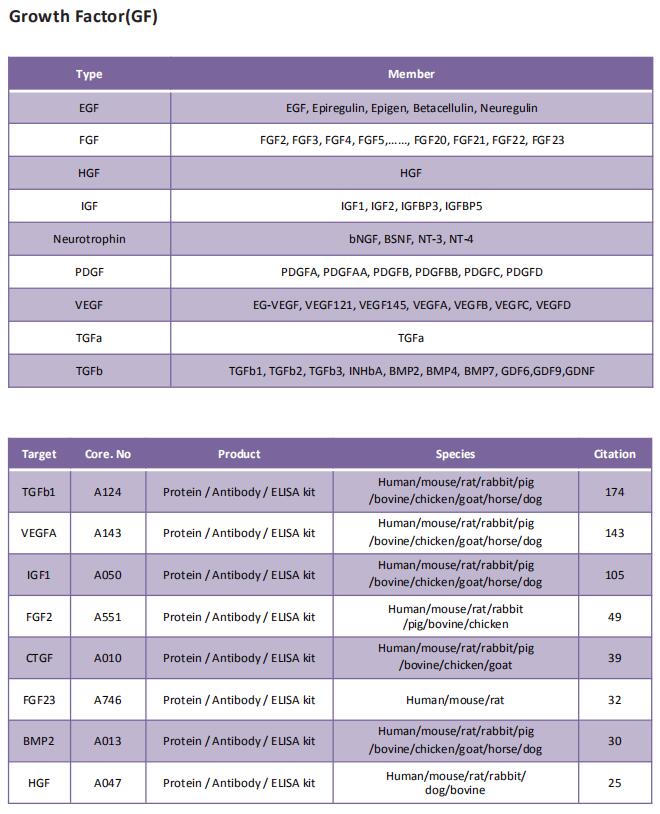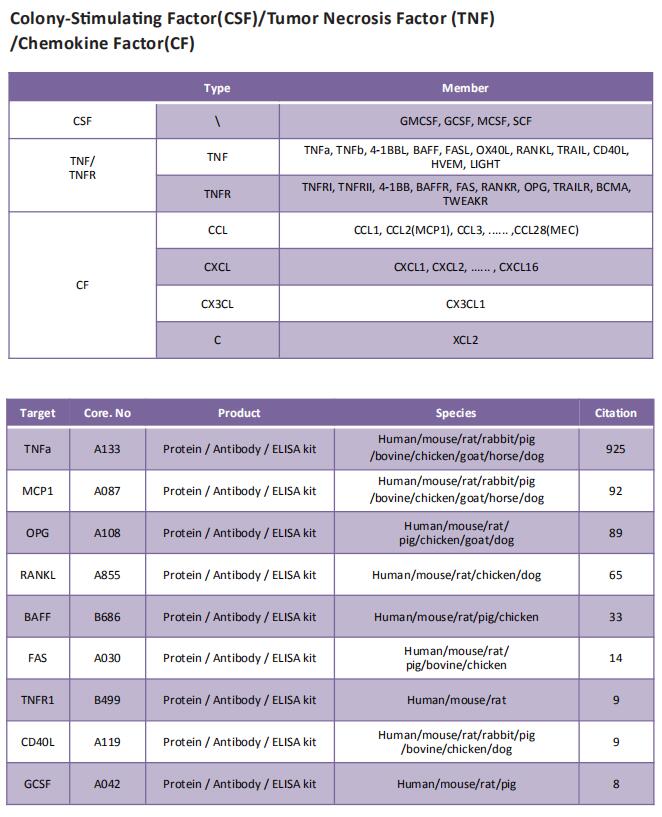Fungal sensing by dectin-1 directs the non-pathogenic polarization of TH17 cells through balanced type I IFN responses in human DCs
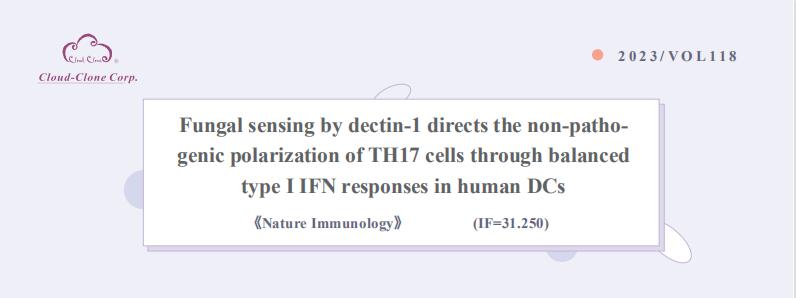
On December 1, 2022, Teunis B. H. Geijtenbeek, Department of Experimental Immunology, Amsterdam UMC - location AMC, University of Amsterdam, The Netherlands, and his team published a paper titled “Fungal sensing by dectin-1 directs the non-pathogenic polarization of TH17 cells through balanced type I IFN responses in human DCs” in nature immunology. They demonstrated that dectin-1 signaling in human DCs specifically instructed the differentiation of non-pathogenic IFN-γ-TH17 cells.
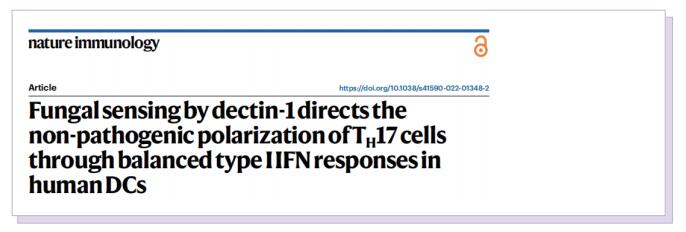
The kits [ELISA Kit for Interferon Regulatory Factor 1 (IRF1), SEB564Hu; ELISA Kit for Interferon Regulatory Factor 5 (IRF5), SEB598Hu] of Cloud-Clone brand was chosed in this article, we are so proud for supporting the reaserchers.


The non-pathogenic TH17 subset of helper T cells clears fungal infections, whereas pathogenic TH17 cells cause infammation and tissue damage; however, the mechanisms controlling these distinct responses remain unclear. Here we found that fungi sensing by the C-type lectin dectin-1 in human dendritic cells (DCs) directed the polarization of non-pathogenic TH17 cells. Dectin-1 signaling triggered transient and intermediate expression of interferon (IFN)-β in DCs, which was mediated by the opposed activities of transcription factors IRF1 and IRF5. IFN-β-induced signaling led to integrin αvβ8 expression directly and to the release of the active form of the cytokine transforming growth factor (TGF)-β indirectly. Uncontrolled IFN-β responses as a result of IRF1 defciency induced high expression of the IFN-stimulated gene BST2 in DCs and restrained TGF-β activation. Active TGF-β was required for polarization of non-pathogenic TH17 cells, whereas pathogenic TH17 cells developed in the absence of active TGF-β. Thus, dectin-1-mediated modulation of type I IFN responses allowed TGF-β activation and non-pathogenic TH17 cell development during fungal infections in humans.
